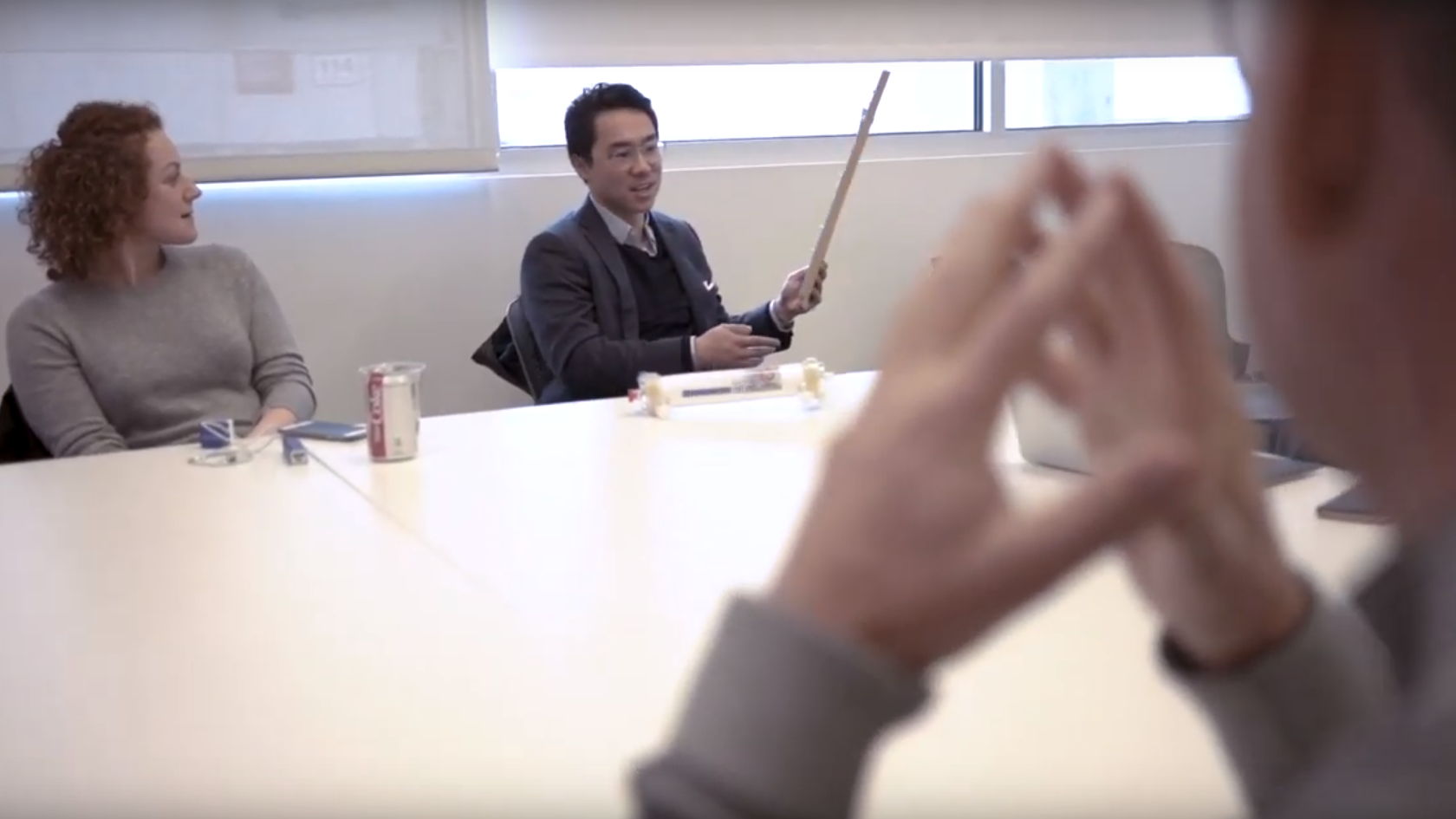What Qualities Do VCs Look for in Founders? Investor Nick Grouf Shares Insights

What qualities do VCs look for in a founder? Decades of experience as a founder and an investor have given Nick Grouf a unique bird’s eye view of fundraising. After earning his MBA from HBS, he co-founded, bootstrapped, and grew successful tech ventures that Microsoft and EarthLink later acquired. He co-founded Clementine Capital, a tech-based incubator that birthed one of the fastest-growing companies in the US. As that venture skyrocketed and began generating $120 million in revenue by its third year, Grouf launched Alpha Edison, a successful investment firm. Sitting on both sides of the fundraising table, he’s witnessed common mistakes many entrepreneurs make. What qualities do VCs look for in founders? In a focused conversation with Shikhar Ghosh, he identifies the qualities and competencies that indicate a startup’s future success for many investors. His insights into what core qualities VCs associate with a founder’s success—including business model, team composition, clarity of thought, and attitude towards risk—can help founders as they raise venture capital.
Qualities VCs Look for in Founders
- Think Carefully About Your Business Model
- Think Clearly & Communicate Succinctly
- Demonstrate Intellectual Integrity
- Balance Risk with Responsibility
Think Carefully about Your Business Model
One of the core qualities that VCs look for in founders is having an in-depth understanding of their business model and the ability to succinctly communicate it.
Repeatedly, he’s noted that founders often don’t spend enough time thinking about their business model. He encourages, founders to develop a more having a complete “understanding of the very fundamental basics of their customers.” Often, he observes, founders align closely with the existing players in the industry. Presumably, they believe this offers “some sort of halo or protection.” In reality, he cautions, “that that usually is a destructive path. It prevents you from thinking independently about the best decisions for the strategy that you’re pursuing.”
He continues, “A lot of the models that we see today there are multiple levels of customers and participation.” Ask yourself, he encourages, “what are their incentives to participate? What is the economic value? What are the competitive dynamics?” If you intend to disrupt an industry, he emphasizes, “you should be able to understand the consequences of disruption. How will players respond?”
Oftentimes, entrepreneurs believe that if they align closely with the existing players in the industry that will give them some sort of halo or protection. But the truth is that that usually is a destructive path. It prevents you from thinking independently about the best decisions for the strategy that you’re pursuing.
Nick Grouf
Think Clearly & Communicate Succinctly
Founders need to understand their business model. They need to clearly and succinctly communicate the model to employees, customers, strategic partners and investors. But as an investor, Grouf admits he sees founders “unable to do that quite a bit.” Clarity of thought and intellectual integrity, he learned is more indicative of future success than intelligence and intellectual processing speed.
He elaborates, “the ability to take in disparate ideas, process them, and process challenging questions. And do it in a way that’s not arrogant but that’s respectful of trying to find the truth. It’s that intellectual integrity that we think is so important.”
It takes extra time and effort, he acknowledges, “to be very crisp and concise and think things through.” But that clarity helps you identify potential challenges and allows you to avoid making million-dollar mistakes later in your company’s lifecycle because you “have failed to think through what the consequences might be.”
Raw intellectual horsepower is nowhere near as valuable as clarity of thought—the ability to take in disparate ideas, process them, and process challenging questions. And do it in a way that’s not arrogant. But that’s respectful of trying to find the truth. It’s that intellectual integrity that we think is so important.
Nick Grouf
Demonstrate Intellectual Integrity
Other important qualities VCs look for in founders are intellectual integrity and self-awareness. As an investor, he has learned that “people who are very introspective, understand their strengths and weaknesses,” tend to have a greater chance of leading and later scaling a successful startup. Because mistakes become so costly, early-stage businesses need people who “are not afraid to ask for help, to raise their hand and say ‘I screwed up’” and ask for help. At an early-stage startup, he notes, “there’s tremendous camaraderie and people will flood in to solve the problem and support the team. ”
To investigate a founder’s intellectual integrity, Grouf has learned to ask founders to share what they feel most insecure about. “It’s “a funny question to ask in a fundraising circumstance or in a job interview,” he admits. But when you pose such a blunt and personal question, “people are forced to decide if they’re going to present themselves as vulnerable in that moment.”
Why is this important? If a founder responds to the question, “Well, I really am not insecure about anything,” it could raise a red flag. It might indicate an underlying mentality that doesn’t align with the reality of an early-stage company. Grouf explains, “if you’re in a big company and you make a mistake and you hide it,” the consequences are small. When someone discovers your mistake months later, “it can be really embarrassing.” BUt it likely won’t have great impact on the company. In contrast, when you make a mistake in a small company and you hide it, Grouf relays, “six months later, it blows up. And that can be fatal.”
One of the clearest indicators that someone is not going to be a good cultural fit for an early-stage company is if someone tells you, “Well, I really am not insecure about anything.”
Nick Grouf
Authenticity
Asking questions that force people to either share or hide vulnerability uncovers another quality VCs look for: authenticity. Grouf stresses, “I’m a big believer that mistakes are good. It’s where we learn. We tend not to learn as much when things go well.”
Candor in admitting mistakes—and showing authentic self-reflection—often can signal future success. Willingness to “be vulnerable in a way that’s authentic tells you a lot about somebody’s character.” To underscore his point, Grouf uses the metaphor of a foxhole. “If you’re in the foxhole fighting it out, a grenade rolls in, you want the person with the best arm picking it up, not the person who wants to prove that they have the best arm to throw that grenade out.”
Going to the places where people are forced to be vulnerable—and be vulnerable in a way that’s authentic—tells you a lot about somebody’s character.
Nick Grouf
Balance Risk with Responsibility
Ghosh observes that typically, VCs assess a founder’s risk profile and tolerance for risk. “A blind tolerance for risk,” he shares can be a red flag for an early-stage founder. He continues, that as a VC, he looks for “a thoughtful and pragmatic tolerance for risk” which he discovers by learning “how people think—and think about—the consequence of the decisions that they’re typically faced with.”
What we’re looking for is a thoughtful and pragmatic tolerance for risk. A number of things help you identify that but a lot of it has to do with how people think—and think about—the consequence of the decisions that they’re typically faced with.
Nick Grouf
For instance, Grouf reflects, “Take Travis Kalanick at Uber.” He stepped down as the company’s CEO in June 2017 and left the board at the end of 2019. Part Uber’s early success, Grouf reviews, stemmed from “a philosophical decision to not ask for permission but ask for forgiveness. It ruffled a lot of feathers, it created a lot of trouble.” In the process, it created an industry and, when Dara Khosrowshahi came on board, he led “the company into a more mature stance as an organization.”
Similarly, in California, electronic scooters abound—”they are everywhere littering the streets.” But the companies “did not do as good a job so far at figuring out how to balance doing what they thought was right for the business and building the right relationships with the municipalities under whose jurisdiction they operate. And that’s created quite a bit of backlash recently.”
Anytime an entrepreneur is pioneering a new space, there’s risk. There’s going to be a tremendous amount of tumult and finding a way to balance maturity with a responsible pioneering spirit is so important.
Nick Grouf
Team Composition
What qualities do VCs looking for in a founding team? Do specific criteria distinguish one team from another? Conventional wisdom suggests that investors look for well-balanced skills. Ghosh inquires about other ingredients of success.
Grouf describes that he returns to the “core again of the business model.” He ponders, “What are the critical skills that are going to be necessary to make this company successful? And how are those going to be represented in members of the team?”
It’s an interesting exercise because I believe that entrepreneurs spend a lot of time thinking about the construction of that team. I wish they spent as much time thinking about the construction of their board. In many ways the talent that you’re looking for in the team—that you need to create marketing expertise, that you need great product management expertise—you want that reflected on your board as well.
To hear Grouf’s thoughts on why founders of successful scale-ups focus more on people and the importance of board selection, see the full interview.

